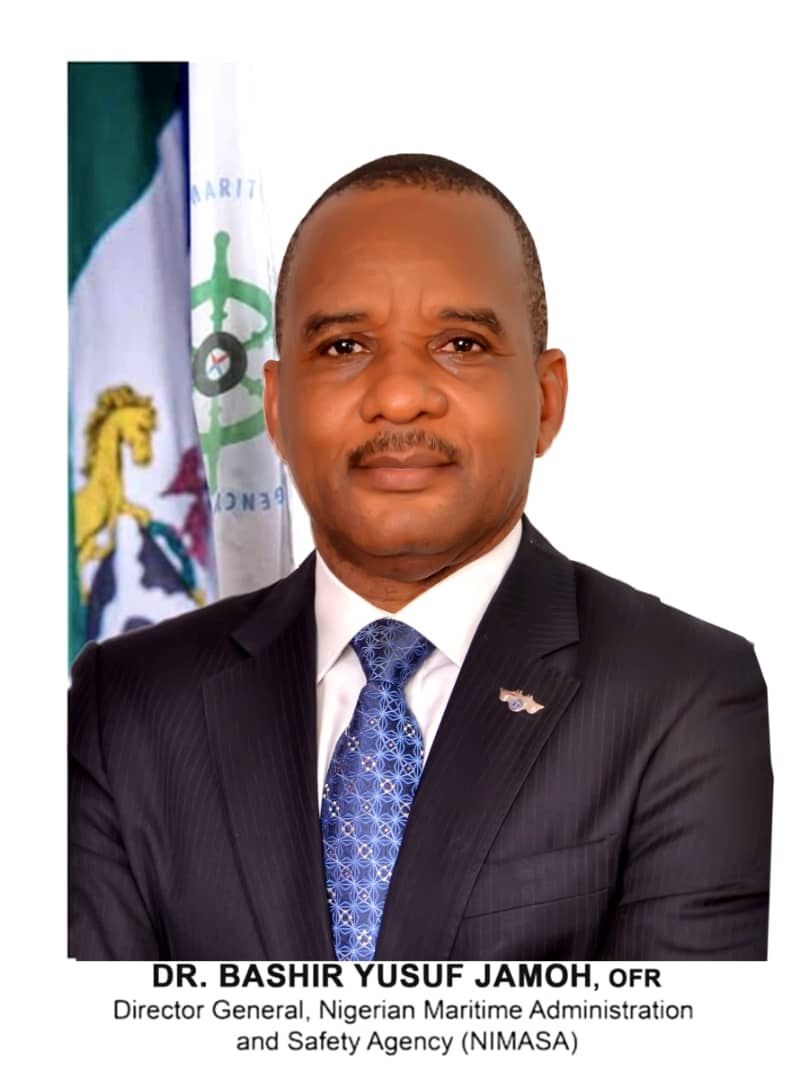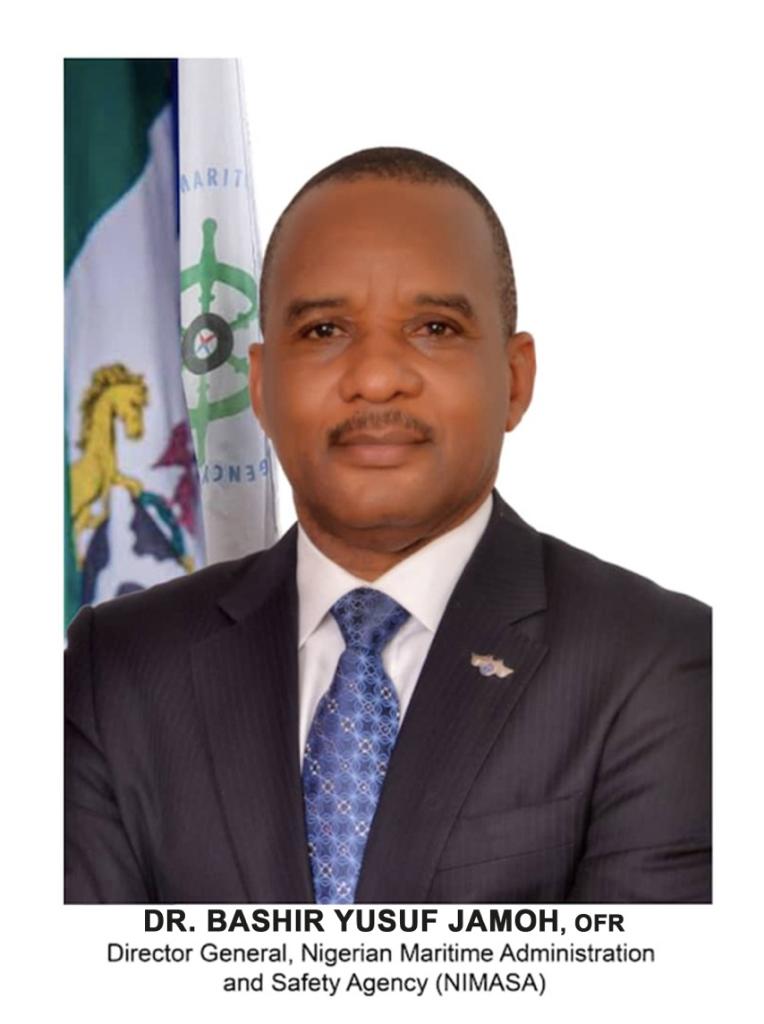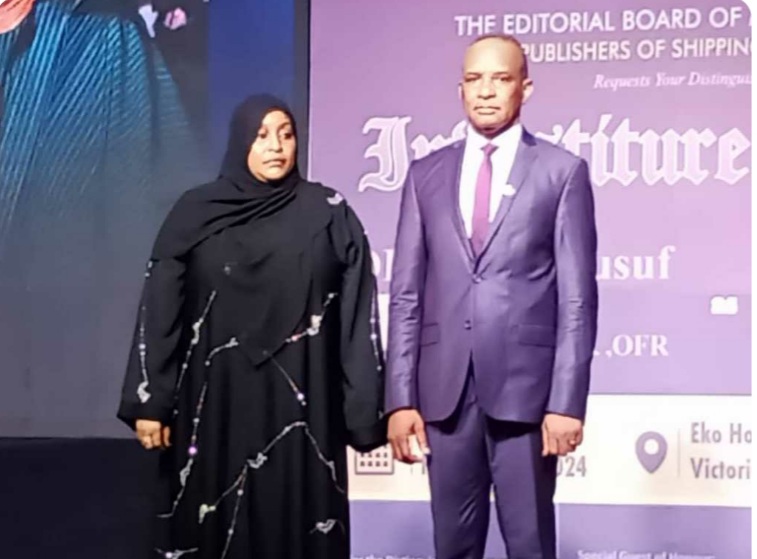Maritime
Jamoh Identify Keys to Unlocking Nigeria’s Maritime Potential

BY TONY OHAKWE
Director General of the Nigerian Maritime Administration and Safety Agency NIMASA, Dr Bashir Jamoh OFR has said that the first step to unlocking the nation’s maritime potential is to identify the various resource components which will serve as a framework for its development.
In addition, he explained that such effort will guide the nation in also identifying her comparative advantage in the global blue economy, thus providing an informed blueprint to harnessing the assortments of maritime wealth.
This is even as the NIMASA DG noted that Nigeria is blessed with a vast coastline of more than 850kilometres, stretching from Badagry in Lagos to Bakassi in Cross River State, with yet inconclusive Jamoh said this remains huge economic advantage to the country with the development of the potential.
Jamoh who was speaking during the presentation of a lead paper at the Bullion Annual Lecture organised by the Centre for Financial Journalism with the theme “Banking on Blue Economy for Nigeria’s Economic Development”, advocated the diversification of marine wealth as part of efforts to achieve the nations desired development goals; both locally and globally.
He lamented Nigeria’s sole dependence on the oil sector for economic survival, and called for diversification of the economy by harnessing the vast and rich blue economic potentials as an avenue to looking realistically at other economic options, some of which he says have far higher economic earnings than crude.
The maritime development enthusiast and NIMASA leader put the nation’s blue economy earning potential at over $24bn, with the capacity to creating tens of thousands of direct and indirect jobs.

His words: “Nigeria had focused on a hybrid economic structure that blends oil with agriculture but the former remained consistent as economic mainstay ahead of the latter over the years. Today, the waters provide now low hanging fruits to diversify the economy. It is increasingly being accepted that the country’s future lies in the Blue Economy.
“We need to take stock of what is out there in our waters, we need to know what we have in terms of what will create jobs, build coastal communities, grow careers, enhance transport of humans and cargo, renew and sustain the environment, reduce poverty and make our nation competitive by maximising our comparative ocean advantages.
“Nigeria’s Government policy direction towards economic diversification from oil dependence to Blue Economy is deliberate because studies have proven that the oil industry is to be subject to limitations in the face of global demand for environmentally sustainable sources of energy. It is also an acceptable fact that the country stands to benefit more from her waters if sustainable steps are taken to harness the many untapped marine potential for investment and job creation while preventing marine pollution”, adding:
“Under the outgoing Buhari administration, there is an Expanded Partnership Committee on Sustainable Blue Economy in Nigeria EPCSBEN, chaired by the Vice President, Yemi Osinbajo. Participation in the EPCSBEN cuts across various ministries, departments and agencies MDAs, with the Federal Ministry of Transport playing a leading role”.
Also speaking, former President of the Nigerian Bar Association NBA, Dr. Olisa Agbakoba (SAN) urged the federal government to consider the establishment of the Ministry of Maritime Affairs as is the case in the aviation sector; to foster greater attention and focus.
Agbakoba explained that such Ministry will deepen development in the maritime sector, even as he tasked the management of Centre for Financial Journalism to ensure that the communiqué of the day’s deliberations is passed on to the next administration as an agenda setting corporate support.
Chairman of the event, Mrs Jean Chiazor- Anishere (SAN), in her remarks said that efforts to unlock the potential of the blue economy require proper coordination and commitment.
The President of the Women in Maritime Africa WIMA, explained that that such efforts will amply the unique needs and challenges of the country’s coastal communities, which will hopefully get the right response some day.




























